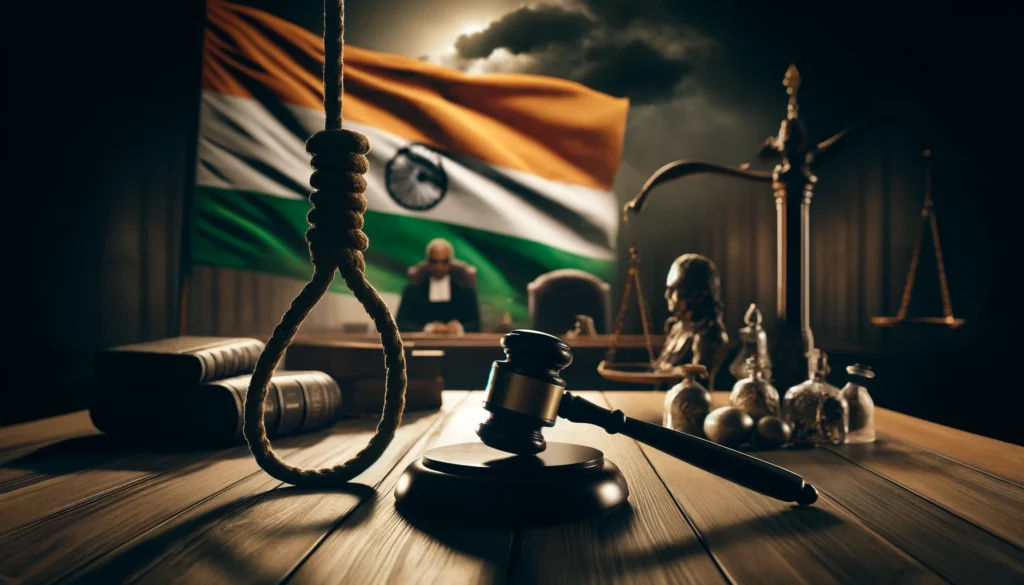Published On: 24th October, 2024
Authored By: Shreyansh Kuldeep Singh
Banaras Hindu University
Judges – ABHAY S. OKA AND RAJESH BINDAL, JJ.
Citation – 2023 SCC OnLine SC 454
Introduction –
This case deals with the death of the accused’s wife, Chhilo Kaur, in the second year of her marriage with the accused, in 1995. The appellant, the accused, was convicted by the trial court under sections 304B, 498A and 201 of the Indian Penal Code (IPC), 1860, and sentenced to rigorous imprisonment under section 304B for 10 years, under section 498A for 2 years and another 2 years under section 201 of IPC. On appeal, the sentence of the accused was reduced from 10 years to 7 years under section 304B of the IPC, and the deceased’s brother-in-law and mother-in-law, who were previously convicted by the trial court, were acquitted by the High Court of Uttarakhand. It is this sentence and conviction of the accused that was in question before the Supreme Court.
Facts –
In 1993, the deceased, Chhilo Kaur, was married to the accused and she started living with her in-laws thereafter. On 24/6/1995, the father of the deceased filed a complaint stating that he had given sufficient dowry to the at the time of his daughter’s marriage, per his status. But two months after the marriage, his daughter came to him and told him that her in-laws were demanding a motorcycle as the same was not given in the dowry. The complainant then told his daughter that he was currently not in the condition to give them a motorcycle and he would it to them once he was capable enough. This went on for a few months and after about a year after marriage, land was also demanded by the deceased’s in-laws. A day before the complaint was filed, the complainant was approached by one Jagir Singh, who resided in the same village as the deceased, who informed him that his daughter had been murdered by her in-laws. On receiving this information, he along with his wife, immediately left for the deceased’s village where he found that two days ago, on 22/6/1995, his daughter was beaten and strangled to death by her husband (Charanjit Singh), her brother-in-law (Gurmeet Singh), and her mother-in-law (Santo Kaur) and that they had cremated her body without even informing them. Hereafter, a chargesheet was filed against the three aforementioned.
The trial court, after evaluating the evidence presented before it and the examination of witnesses by both the prosecution and the defence, six witness examinations by the prosecution and only one by the defence, convicted the three charged individuals under sections 304B, 498A and 201 of the Indian Penal Code, 1860, and were sentenced to 10 years of rigorous imprisonment under section 304B of the IPC, 2 years of imprisonment under both sections 498A and 201 of the IPC. On appeal to the High Court, the convictions of the mother-in-law and brother-in-law of the deceased were set aside and the sentence of the accused was reduced from 10 years of rigorous imprisonment to 7 years under section 304B of the IPC. This decision of the High Court was further appealed against by the appellant in the Supreme Court.
Issues –
Two legal issues were raised by the appellant before the court –
- Whether the conviction of the accused by both the trial court and the high court could be legally sustained under either sections 304B or 498A of the IPC?
- Whether there was any harassment or cruelty to the deceased or any demand for dowry immediately before her death?
Appellant’s arguments –
The counsel for the appellant, who was asked to assist the court as amicus curiae as the counsel who had filed the appeal was absent, argued that the conviction of the accused either under sections 304B or 498A of the IPC was not legally sustainable as the prerequisites of presumption under section 304B of the IPC were not satisfied in this case, i.e. that soon before the death of deceased, she must have been subjected to cruelty or harassment for or in connection to any demand of dowry. This presumption is raised in terms of section 113B of the Indian Evidence Act, 1872, which requires the same to be shown before the court presumes that such death was ‘dowry death’.
The counsel for the appealant also argued that the evidence led by the prosecution when examined, formed no basis for conviction of the accused under sections 304B or 498A of the IPC as none of the witnesses stated that there had been any cruelty or harassment to the deceased for any demand of dowry soon before her death. Neither the deceased’s father nor her maternal grandmother nor her maternal uncle stated anything about any such harassment to the accused, and in fact, the latter two along with another maternal uncle of the deceased were living not much far away from the deceased and were also present at her cremation but did not raise any such issue neither to the police nor anyone else. Further, after the cremation, with intervention from the panchayat, certain dowry articles were admitted to have been collected by them and it was also admitted that intimation was given to the father of the deceased about the same, who lived about 290 km away from the place and it would not have been suitable to wait for his arrival to cremate the deceased.
The counsel further argued that an important witness to the prosecution case, Jagir Singh, who was supposed to have informed the complainant of his daughter’s demise was not produced by the prosecution in their evidence. According to Investigation Officer Babban Singh, the statement of Jagir Singh was recorded and yet he was withheld from the court. Relying on Baijnath v State of MP1, the counsel submitted that once the ingredients of sections 304B and 498A of the IPC and section 113B of the Indian Evidence Act were not established, no presumption could be raised on the basis of these provisions. It was also argued that as the allegations against the husband of the deceased were the same as those against her mother-in-law and brother-in-law, why has no appeal been preferred against their acquittal and also that the death of the deceased was not unnatural as she was suffering from fits, something which was admitted to by the maternal grandmother of the deceased.
Respondent’s arguments –
The counsel for the State argued that this case was one where a young woman was killed by her in-laws in their greed for dowry. The counsel stated that the marriage was only two years old and the death was unnatural. The cremation of the deceased was performed without even informing her parents and her maternal grandmother and uncles, who were present at the time of cremation, had noticed injury marks on her body and also a broken tooth. But they were threatened against saying anything to the police or anyone else. The counsel also contended that since the deceased had died in her matrimonial home, a very heavy onus lay on her appellant to disprove the presumption. The counsel also argued that many witnesses had concurred that the appellant and his family had repeatedly demanded dowry from the deceased’s family. The counsel thereby, contended that the judgement passed by the High Court was not in error and that sufficient indulgence had been shown by the High Court by reducing the sentence of the appealant from 10 years of rigorous imprisonment to a minimum of 7 years under section 304B of the IPC.
Judgement –
After evaluating the evidence and arguments presented before the court by both the prosecution and the defence, the judges were of the opinion that the conviction of the accused under sections 304B, 498A and 201 of the IPC by the trial court and the High Court was not legally sustainable as the evidence led by the prosecution did not institute the ingredients necessary for presumption of guilt of the accused neither under section 304B or 498A of the IPC or section 113B of the Indian Evidence Act. Thus, the appeal of the accused was allowed and his conviction was set aside by the Supreme Court.
- Ratio decidendi – The interpretation of sections 304B and 498A of the IPC had come up earlier before the court in Baijnath v State of MP, wherein while mentioning the ingredients of the concerned sections, the court observed that cruelty or harassment of the victim by her husband or his relatives for or in connection with any demand for any form of dowry was a common constituent of both these offences. Further, pertaining to section 113B of the Indian Evidence Act, the court had observed in the aforementioned case that “The presumption as to dowry death thus would get activated only upon the proof of the fact that the deceased lady had been subjected cruelty or harassment for or in connection to any demand of dowry by the accused and that too in reasonable contiguity of the death.” Thus, a joint reading of the three provisions as stated in the above case, it was affirmed that the burden lay on the prosecution to indisputably prove that the ingredients of the two offences exist in order to raise the presumption under section 113B of the Indian Evidence Act. The judges in the present case then observed that it was on these lines that the present case needed to be examined. The court observed that despite the deceased’s father’s stating that motorcycle and land were demanded by the appellant and his family, there was nothing in his statement to indicate that any such demand had been made immediately before her death. He had also admitted that the maternal grandmother and two maternal uncles of the deceased were present at the cremation and that they were threatened not to complain to the police or anyone else. One of these uncles, Balbir Singh, merely stated that sufficient dowry was given at the time of marriage and he had later heard about the appellant’s demand for a motorcycle. He also stated in cross-examination that no dowry was demanded at the time of the marriage. Even Beero Bai, the maternal grandmother of the deceased, stated nothing that would indicate any cruelty or harassment to the deceased soon before her death, despite her living only a mile away from the deceased and often visiting her. On collective appreciation of the above-mentioned evidence, the court arrived at its decision to set aside the conviction of the accused as the prerequisites of presumption under section 304B of the IPC and 113B of the Indian Evidence Act could not be established by the prosecution. The court also observed that “mere death of the deceased being unnatural in the matrimonial home within seven years of marriage will not be sufficient to convict the accused under sections 304B and 498A of the IPC.”
Critical analysis –
The above judgement is of crucial value in the present times. Dowry death cases are not something that our country is a stranger to. According to certain data and statistics, about 6000 dowry death cases are filed every year in our country and an average about 21 women die dowry death on a daily basis. But the conviction rate in such cases is less than 35%, which is astonishingly low as there is also little to no record of false cases being filed in such matters. In light of the above facts, the judgement, in this case, might seem a little naive as it only further increases the burden on the state to prove the guilt of the accused. But that is not the case. We must keep in mind that the law operates to protect the interests of the innocent. If the courts start following the practice of convicting the accused only on the basis of presumption and not the specific facts of every case individually, it would be a grave injustice against not only the accused but also the society at large. It would dramatically increase the misuse of this law and would adversely affect the many positive traits of the same. Thus, the current judgement is crucial as it lays down the path forward in cases of dowry death and promises justice to ones who might be aggrieved by the misuse of such law.
- (2017) 1 SCC 101





👌👌